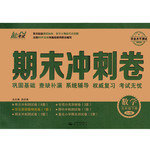题目内容
Such a magazine has_____except when you have time to kill.
A.little value B.much value C.a lot of values D.great value
A
解析:
value 指事物具有的实用“价值或重要性”,为不可数名词。

练习册系列答案
 能考试期末冲刺卷系列答案
能考试期末冲刺卷系列答案
相关题目
题目内容
Such a magazine has_____except when you have time to kill.
A.little value B.much value C.a lot of values D.great value
A
value 指事物具有的实用“价值或重要性”,为不可数名词。

 能考试期末冲刺卷系列答案
能考试期末冲刺卷系列答案